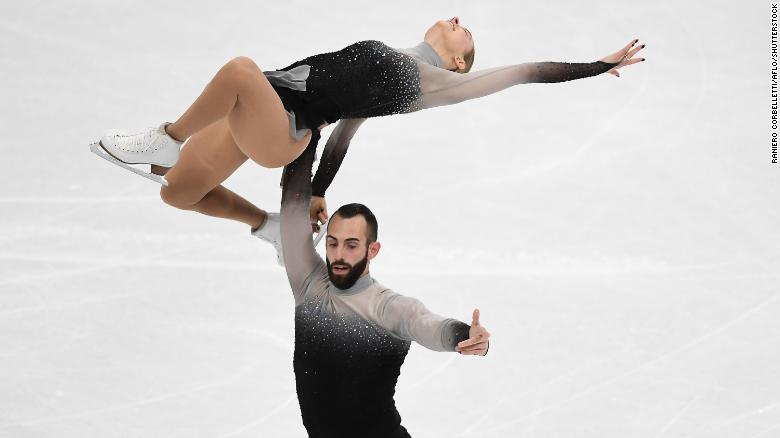
The 2022 Winter Olympics has many controversies looming behind it, ranging from unfavorable quarantine conditions for athletes who test positive for COVID-19, concerns about climate change, and a potential conflict between Russia and Ukraine. Things may seem bleak, but there’s still a lot to celebrate when it comes to social issues at the Olympics this year.
This calendar year has been historic for transgender athletes. The unusual timing of the 2020 Summer Olympics means that many ‘firsts’ for both the Summer and Winter Olympics are happening within six months of each other. After the Tokyo Olympics boasted a record number of trans athletes, the Winter Olympics celebrated their first out non-binary competitor, Timothy LeDuc. LeDuc will compete for the United States in pairs figure skating with their partner, Ashley Cain-Gribble. LeDuc seeks to challenge the gendered norms and show the world how pairs skating is changing for the better.
Additionally, the International Olympic Committee (IOC) will no longer use testosterone levels to determine whether or not an athlete can compete. The IOC’s new guidelines advocate instead for policies that disqualify transgender and/or intersex athletes if they have a demonstrated competitive advantage. This moves away from the old policy, where trans athletes needed to have testosterone levels below 10 nmol/L. This change should be welcomed with open arms. Before, the IOC’s guidance caused athletes significant distress as what should have been their private medical records became the subject of public scrutiny.
Unfortunately, not everyone seems to agree. After reading articles about the IOC’s decision, I celebrated the progress that was slowly being made for sports on the world stage. After checking the comments, however, I started to lose a bit of my faith. While a few anonymous comments on a news article do not determine the majority opinion, it is disheartening to see how many people disagree with these new policies, as well as how many people feel comfortable spewing transphobic rhetoric.
These harmful ideas are being backed up by policy as well. These global victories for trans rights are overshadowed by increasing censorship of LGBTQ citizens in China. Accounts on popular messaging services have been shut down, Shanghai Pride was forced to cancel all events last year, and non-governmental organizations that seek to serve LGBTQ people are struggling to run events due to a lack of funding amid a hostile environment.
The United States isn’t much better. A law banning transgender athletes in South Dakota was passed in the House on Feb. 1, 2022 alongside a second bill that would prohibit transgender youth from using multistall bathrooms that correspond with their gender. Mark Miller, the chief of staff for the South Dakota Governor, drew a comparison between transgender kids and terrorists.
Discussing trans rights in sports feels like a “one step forward, three steps back” type of deal. We progress further when we allow athletes to compete on an international level and serve as role models for the next generation. At the same time, these children are watching legislators try to prevent them from being just like any other kid. A legislator should not care so much about where a child uses the bathroom or which one is used.
That’s why it’s important to recognize the victories. That’s why it’s important to draw attention to stories that are ignored. The media is often selective in the stories it covers about transgender athletes; most of the time, we read articles about trans women winning and the complaints of cis women who call the fairness of the wins into question. But we don’t often read stories about successful trans men. Nonbinary athletes’ results are not scrutinized. And you would be hard-pressed to find a story about a trans woman losing. Our biases are confirmed by what the media covers, leading to a cycle where people believe that many trans women are routinely defeating cis women in competition.
This is a maliciously false narrative. The first out transgender woman to compete in the Olympics was Laurel Hubbard, who competed in weightlifting in the 2020 Summer Olympics but did not complete any of her lifts. As transitioning loses its social stigma, more and more trans women compete, but they are not making it to the national or international level. And if they do, they aren’t constantly blowing away their competition.
Trans women are women and deserve to compete against fellow women. We shouldn’t use examples of incredibly talented, well-deserving athletes to legislate against children who want to compete in sports. Kids deserve to play how they want to. If there’s a chance that a future child grows up to compete on the world stage, then we should let them.

